When people ask what is the best floor cleaner for ingrained dirt, they’re usually not just after a product — they’re desperate for a solution that works and won’t wreck their flooring in the processWe’ve tackled everything from century-old wood floors caked in a cocktail of dust, to greasy garage tiles that saw more oil than a fish and chip shop.
Ever stared at your floors wondering if a small coal mine opened up under the tiles overnight? You scrub, mop, curse a bit — but the grime’s still clinging on like your mate’s bad advice. That’s ingrained dirt for you. It’s not just a surface stain — it’s deep. The kind that needs more than warm water and elbow grease.
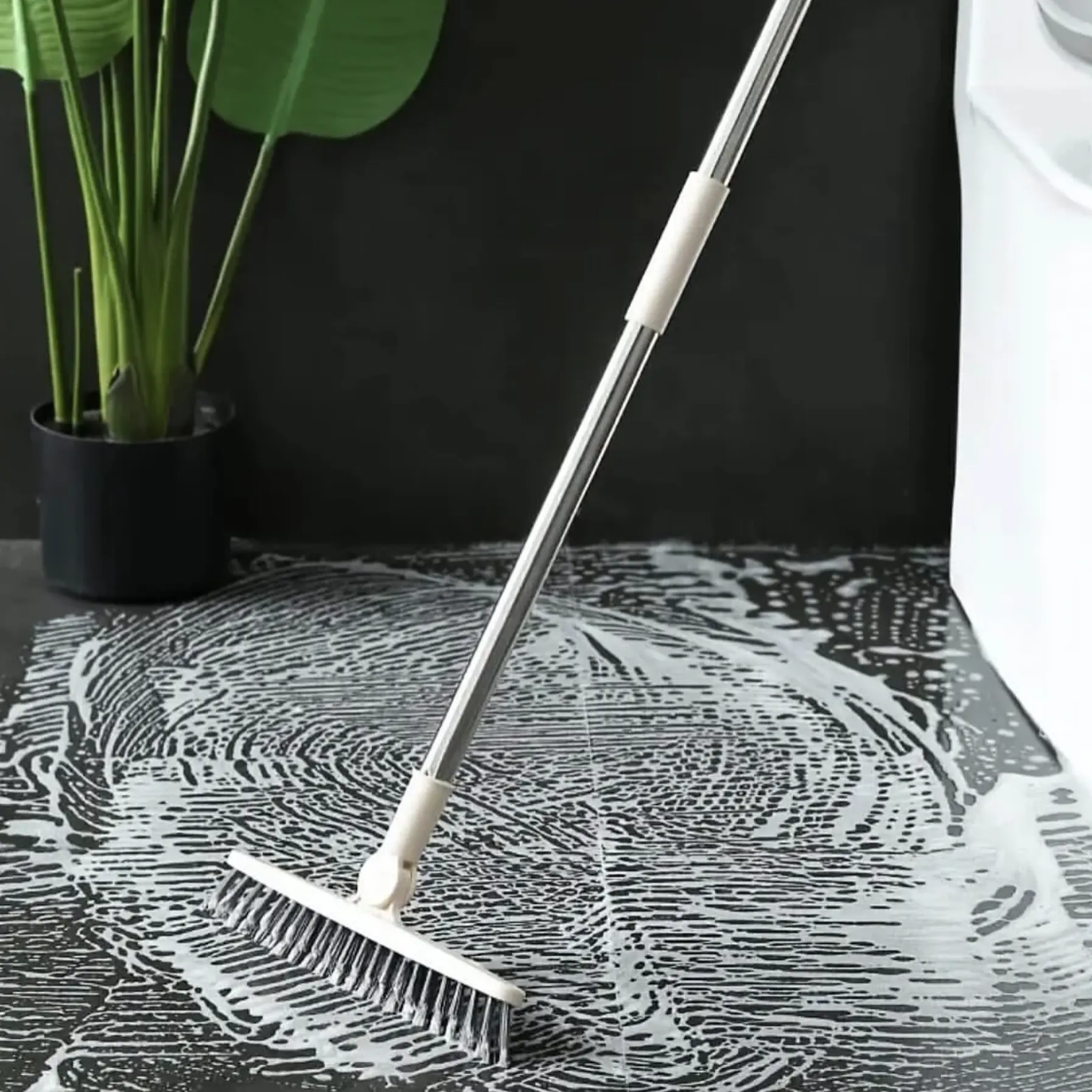
When Mopping Isn’t Enough?
Ingrained dirt is the kind that laughs at regular cleaning. It’s not just loose dirt or surface dust — it’s ground-in dirt that’s built up over time from muddy shoes, liquid spills, furry friends, kitchen grease, and everything life throws at your floors. It seeps into grout, clings to textured surfaces, and refuses to budge with a basic mop-and-bucket routine.
How to Spot It:
- Stains that reappear after drying
- Discolouration in grout or natural stone tile
- Patches that stay dark even after frequent cleaning
- Areas that feel tacky or gritty even after a scrub
Know Your Floor Type First
Before you whip out the steam cleaners or douse the place in chemical cleaners, figure out what you’re cleaning. Different floors need different tools, solutions, and cleaning methods.
Tile Floors & Grout
- Loves to hold dirt in crevices
- Great candidate for alkaline baking soda mixture or professional tile cleaning solution
- Avoid harsh chemicals unless made for ceramic tile
Natural Stones (Limestone, Travertine, Slate)
- Acidic vinegar or strong fragrances can etch and stain
- Use mild or pH-neutral soap and gentle cleaning solutions
- Great for floors with ground-in dirt if handled with proper care
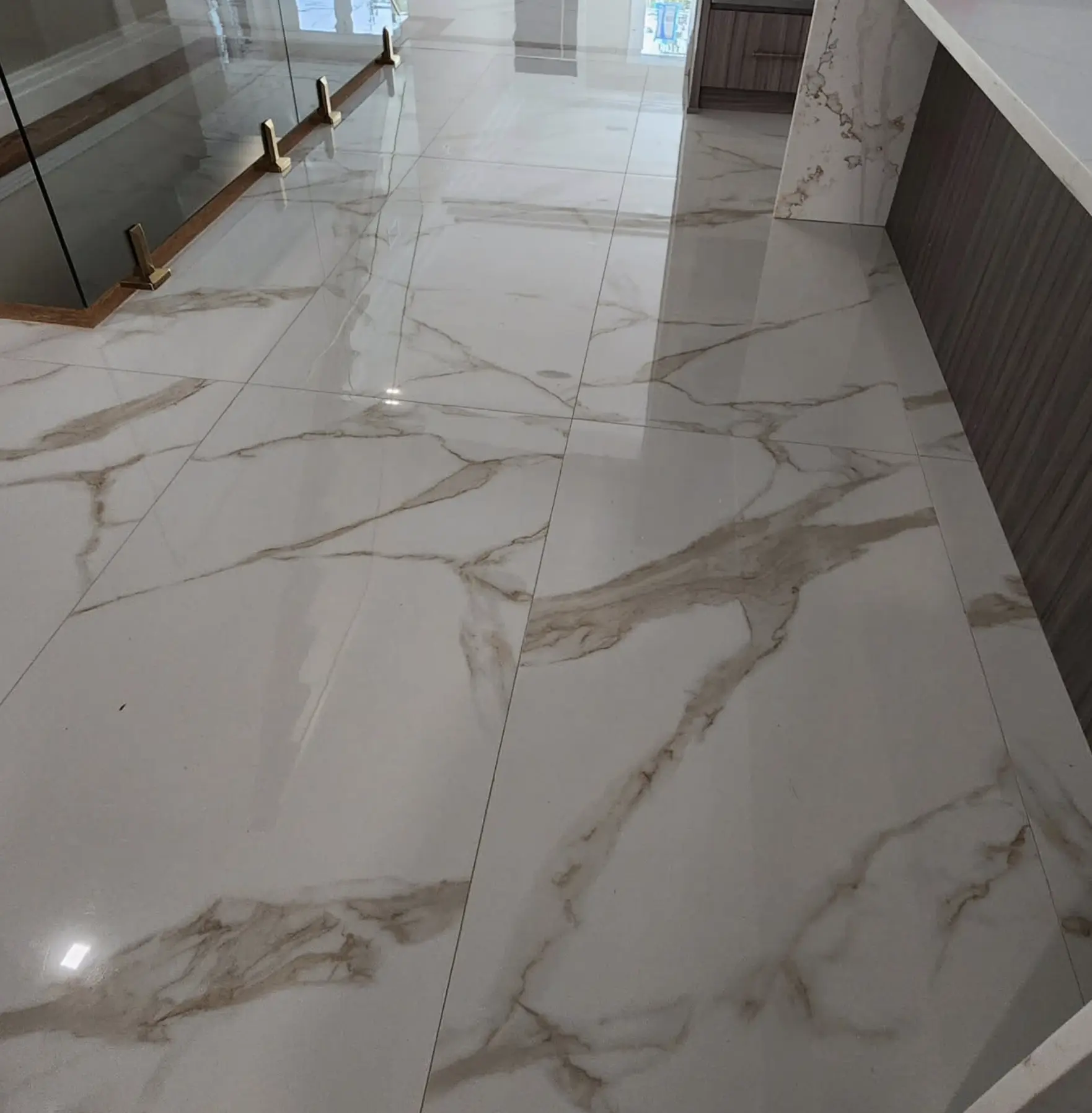
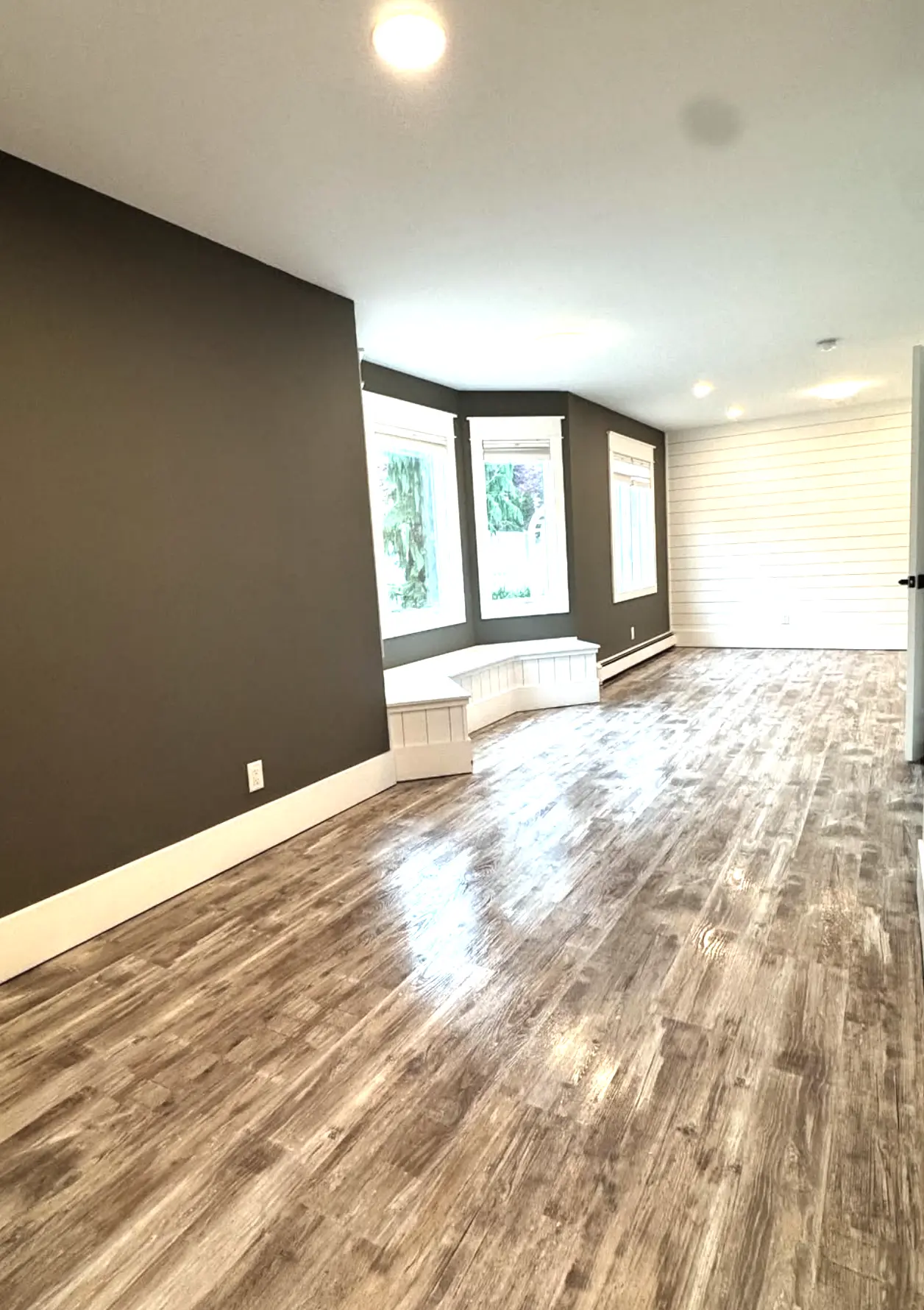
Hardwood Flooring & Engineered Timber
- Hates excessive moisture — leads to warping and moisture damage
- Use a damp microfiber mop and mild dish soap or commercial hardwood cleaners
- Avoid steam mops unless the label says “safe for wood”
Laminate Floors
- Handle with care — too much water = lifting boards
- Use laminate floor cleaners or homemade cleaners with warm water and a few drops of dish soap
- No abrasive tools or coarse brushes — soft-bristled brush only
Vinyl Floors (Including Classic Imitations)
- Responds well to multi-surface cleaners and microfiber cloths
- Avoid abrasive cleaners that leave water spots
- Excellent choice for kitchens and high-traffic areas
The Cleaners That Work
Heavy-Duty Alkaline Cleaner
- Use for: Garage floors, tile grout, and textured surfaces
- Why it works: Breaks down greasy build-up and stubborn dirt
- Hot tip: Wear gloves. This stuff’s not playing around.
Steam Cleaning with a Mild Cleaner
- Use for: Synthetic floors or sealed floors
- Why it works: Lifts built-up dust and sanitises without harsh chemicals
- Warning: Steam cleaners = wet floor risk. Not for hardwood floors.
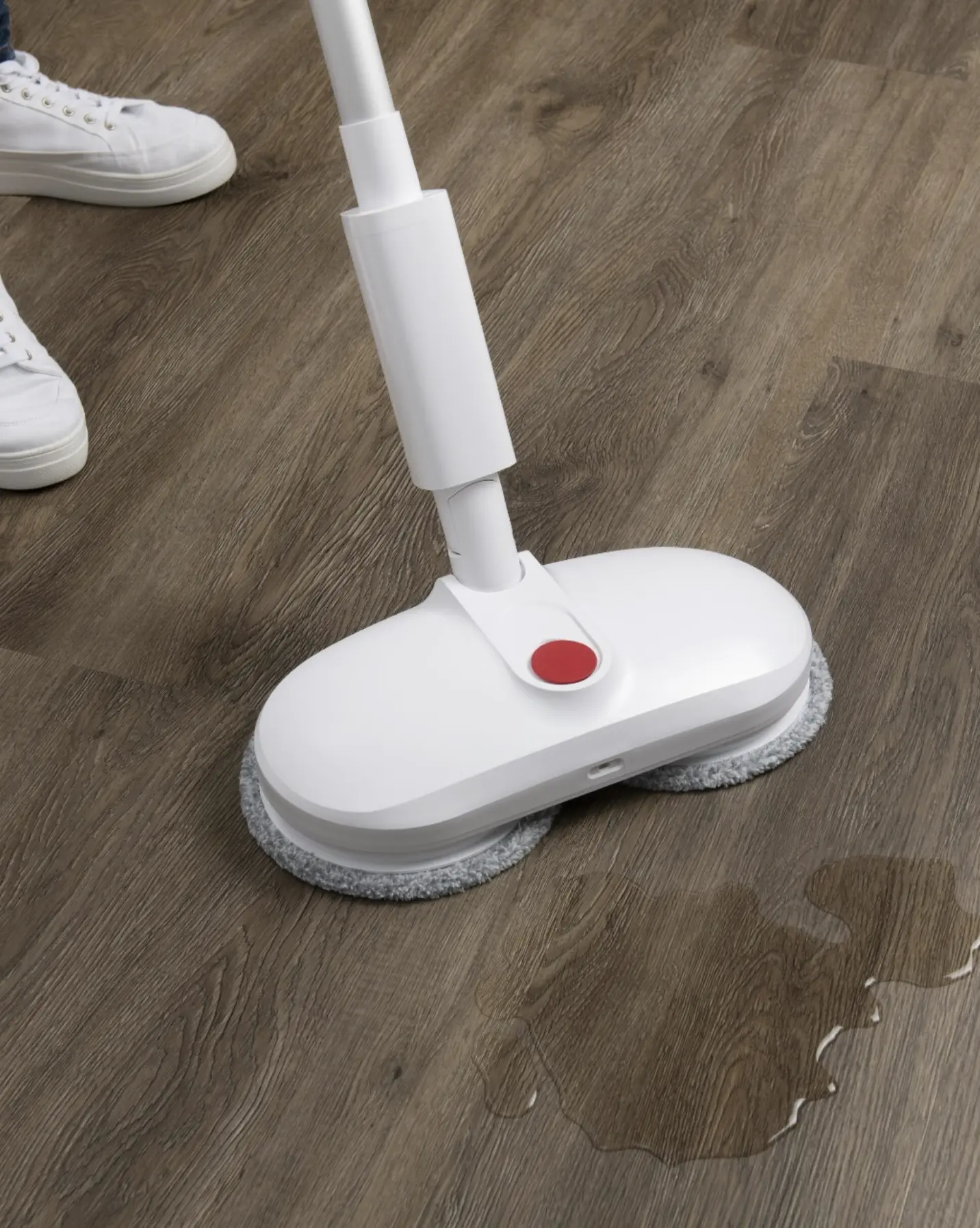
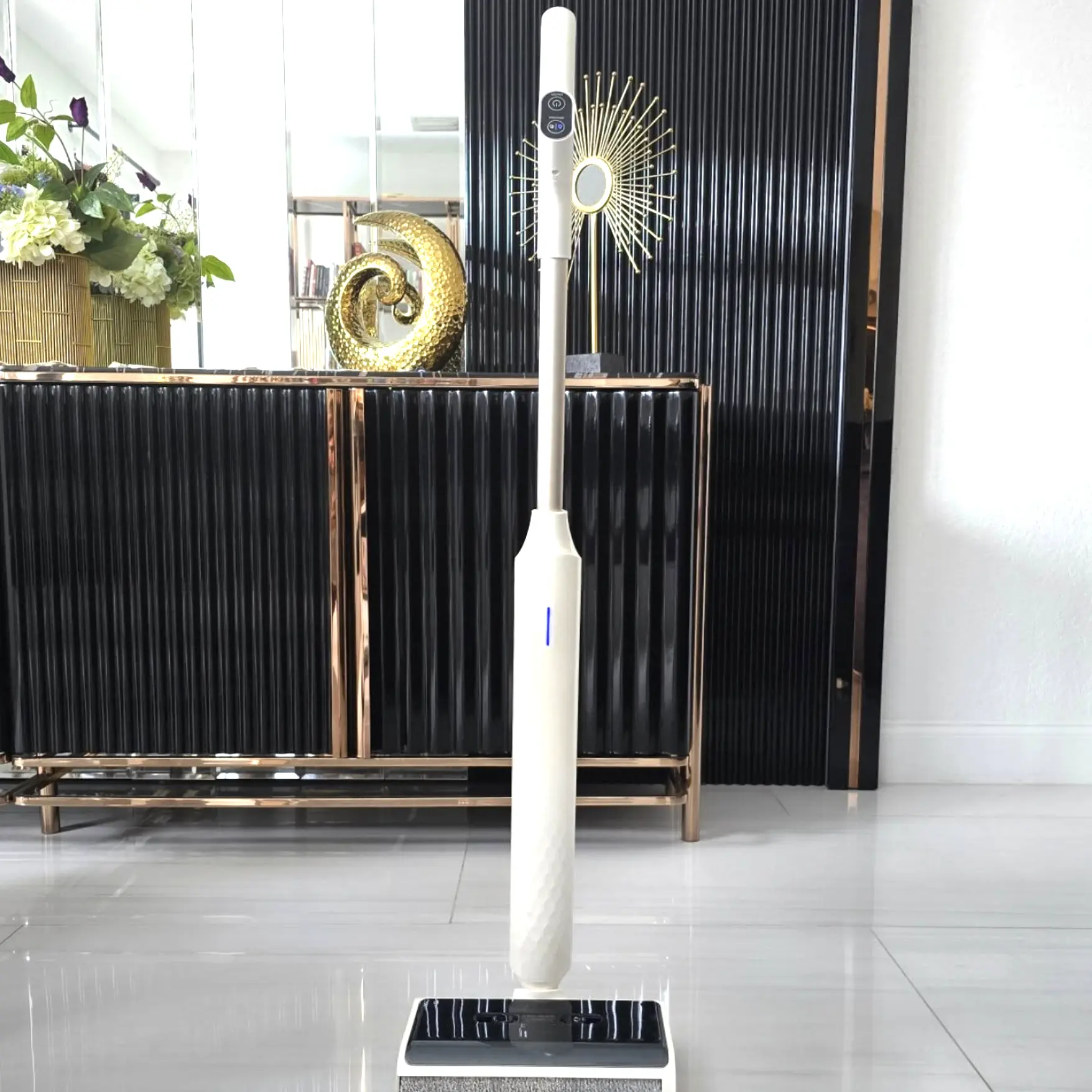
White Vinegar + Baking Soda (DIY Combo)
- Use for: Floors with vinegar-safe finishes (vinyl, ceramic)
- Why it works: Tackles dirt stains and removes odour
- Mix: Cup vinegar + 1 tbsp baking soda + warm water
Commercial Hardwood Cleaners
- Use for: Wood flooring and 100-year-old wood floors (yes, we’ve cleaned those)
- Why it works: Made for the job, won’t ruin your wood grain
- Avoid: Ammonia-based cleaners or acidic liquids
Sugar Soap or Mild Dish Soap
- Use for: General deep cleaning
- Why it works: Gentle but effective
- Pro tip: Just a drop of dish soap in a bucket of water will do
Tools That Make the Job Easier
You wouldn’t use a hammer to butter toast, so don’t attack your floors with the wrong tools.
Our Go-To Cleaning Tools:
- Soft-bristled brush or Stiff-Bristle Brush: For scrubbing textured floors and grout
- Microfiber mops: Hold on to dirt, great for laminate flooring and hardwood floor maintenance
- Vacuum cleaner with soft brush attachment: Pulls out built-up dust before you wet the floor
- Dust mop: Great for daily dust removal on wood and vinyl
- Steam mops (used sparingly): Good for ceramic tile and vinyl floors — avoid excessive water
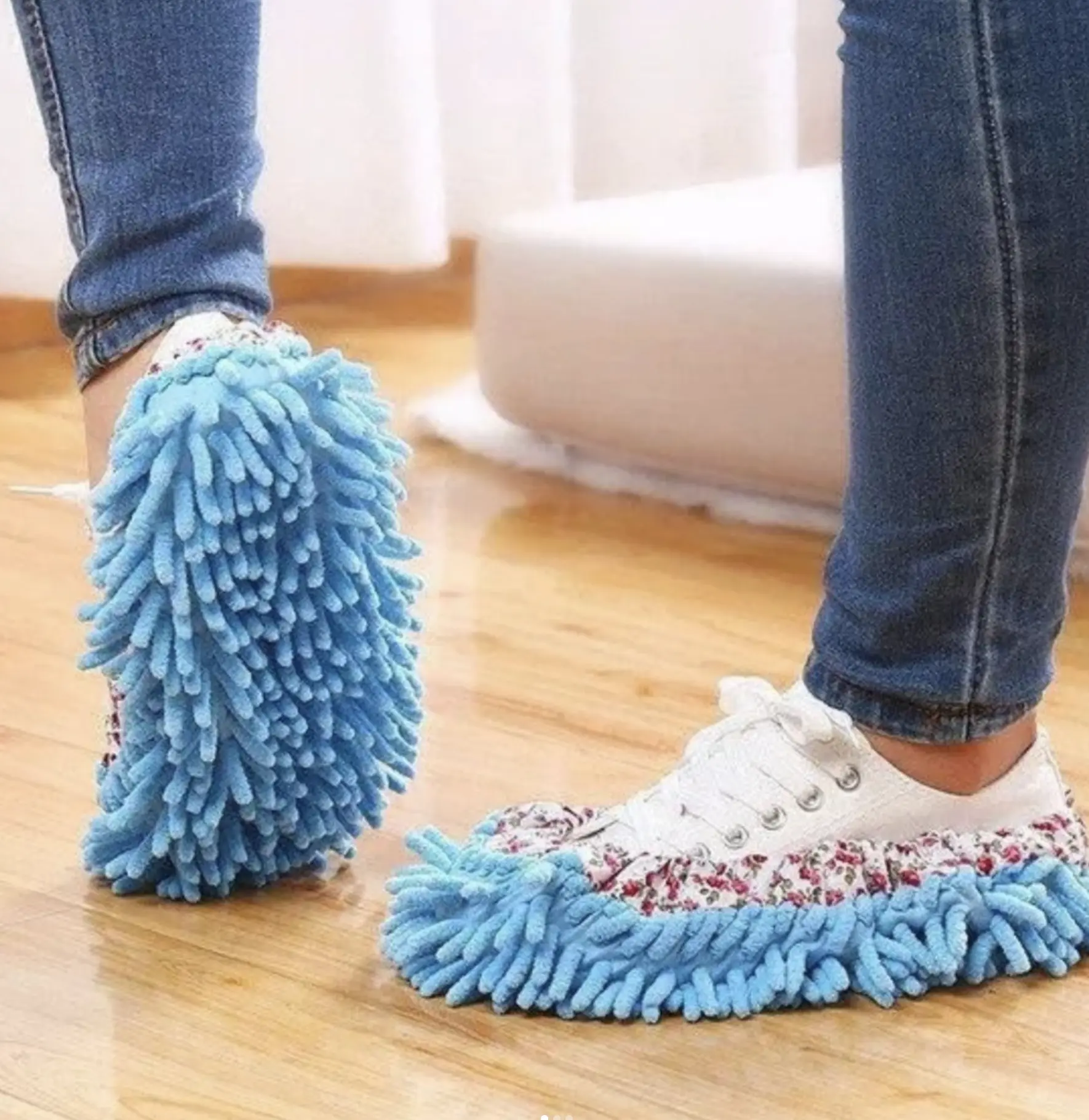
Step-by-Step Cleaning Process
1. Dry Sweep or Vacuum
- Start with dry tools to remove loose dust and a cocktail of dust buildup.
- This avoids creating dirty water when you start wet cleaning.
2. Apply Your Cleaning Solution
- Use your cleaner of choice.
- Don’t go overboard — a bit of water with the right product is more effective than flooding the place with soapy water.
3. Agitate with Brushes or Machines
- Work the solution into the floor — especially trouble spots and textured areas.
- A soft brush attachment helps prevent scratches.
4. Rinse With Clean Water
- Always use fresh water to rinse.
- Dirty water just re-applies grime.
5. Dry the Surface
- Use a clean microfiber cloth or a damp microfiber mop to prevent water spots or moisture damage.
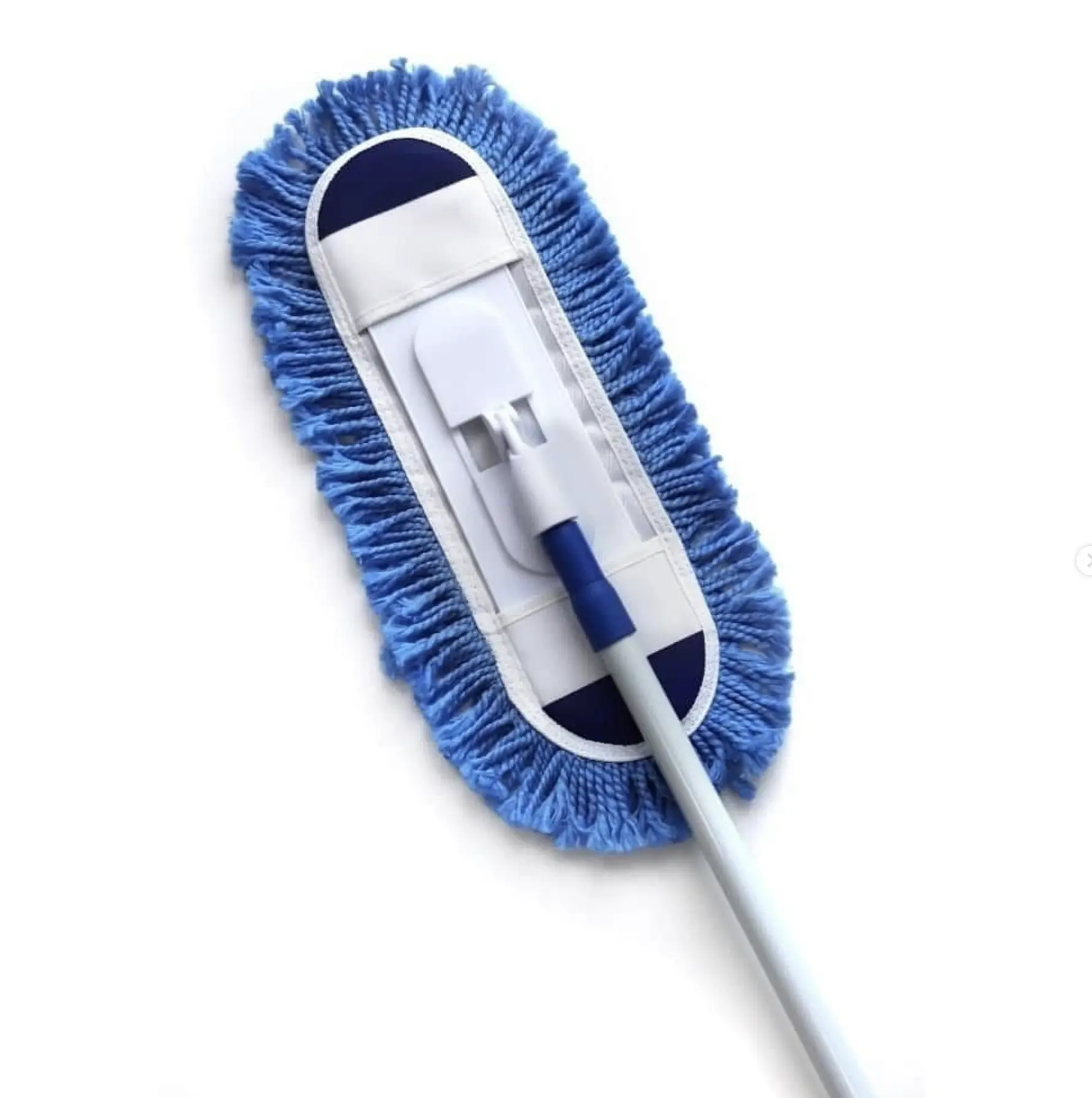
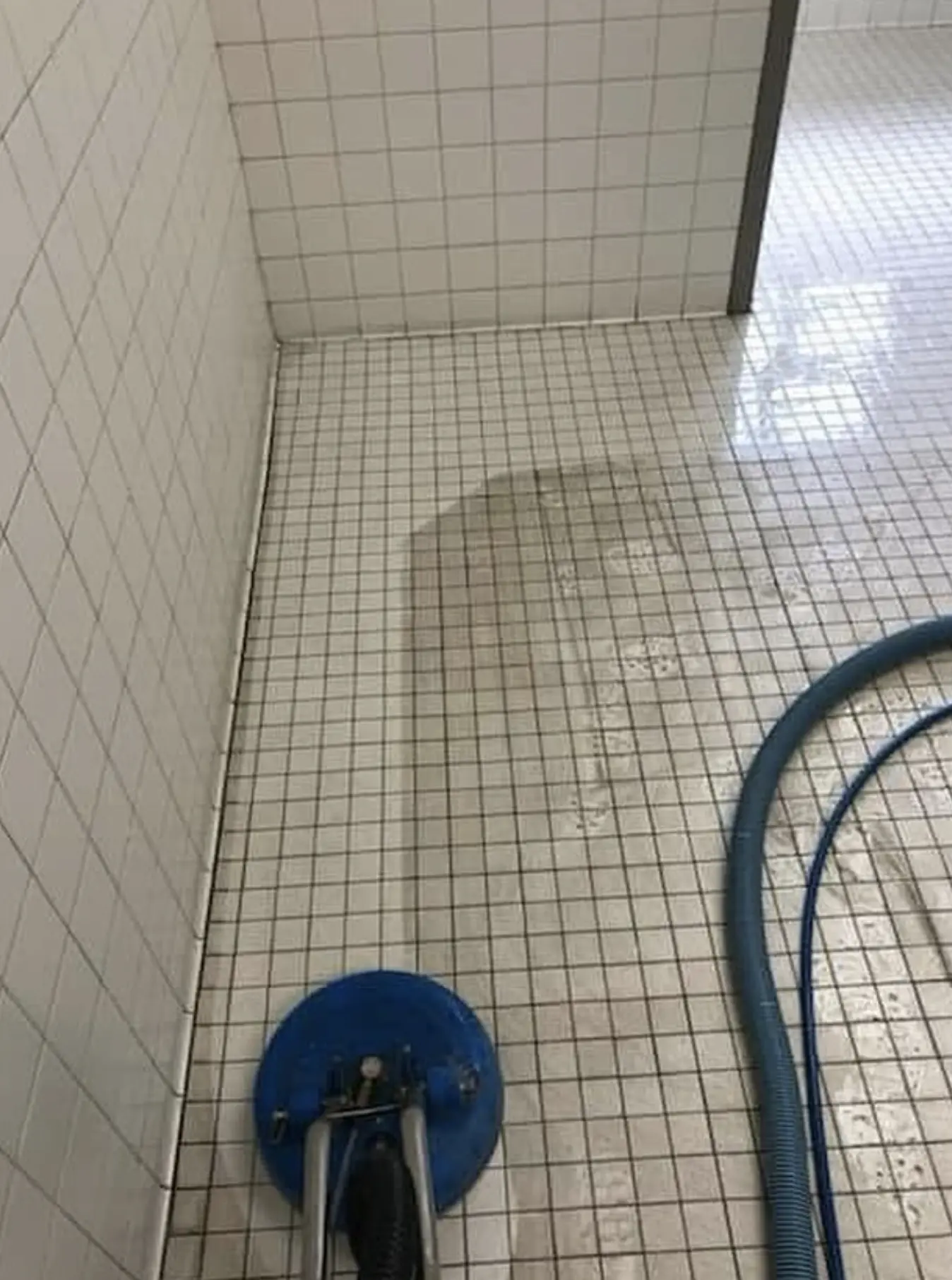
What to Avoid to Prevent Damage
We’ve seen it all — from laminate lifting like a dodgy toupee to hardwood floors buckling because someone got trigger-happy with steam mops.
Don’t Use:
- Abrasive brushes on soft floors (they’ll scratch)
- Excessive water on wooden floors (leads to moisture damage)
- Acidic vinegar on natural stones (will dull and etch)
- Dark soda or cider vinegar on porous tiles (stains, not cleans)
- Strong chemical-based cleaners without checking compatibility
*If in doubt, call in professional cleaners — especially if the cleaning requirements are complex or involve sensitive surfaces.
When to Call In the Pros
You’ve tried steam cleaning. You’ve hit it with baking soda residue and every commercial cleaning product on the shelf. Still filthy?
Time to bring in professional cleaning services. They’ve got advanced equipment, cleaning machines, and cleaning specialists who know how to tackle tough stains on any floor type.
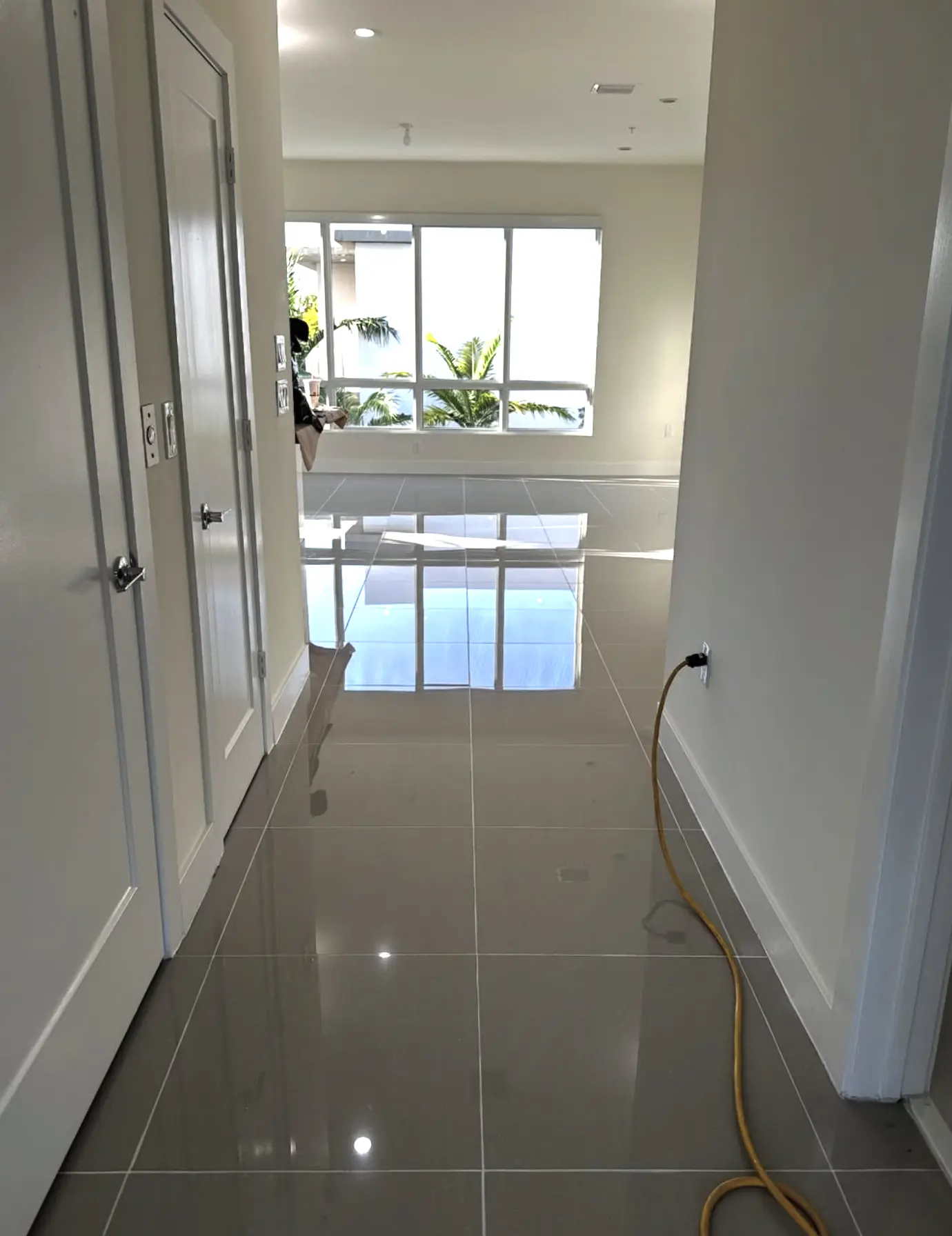
You’ll benefit from:
- Professional cleaning tools like rotary scrubbers and commercial cleaning products
- Chemical-free cleaning for homes with pets or kids
- Deep cleaning without damage or excessive water
- Assistance for repairs if things go sideways
If you’ve ever watched the Window Cleaning Melbourne Crew blast baked-on dirt off a weather-beaten building in Melbourne, you’ll know there’s no substitute for the right gear and the right know-how.
FAQ
Can I use vinegar on all floors?
Not on natural stones like marble or slate — vinegar is an acidic liquid that can etch them. Only use vinegar-based homemade cleaners on vinyl, ceramic tile, and laminate floors.
What’s the best natural cleaner for stubborn dirt?
A mix of white vinegar, warm water, and baking soda can be an excellent choice for floors safe from acid. Just rinse well to avoid baking soda residue.
Is steam cleaning safe for hardwood?
Generally no. Excessive moisture from steam cleaners can cause wood grain to lift and warp. Stick with damp microfiber mops for wood flooring.
What’s the best way to prevent dirt buildup?
Regular sweeping, proper cleaning routines, and prompt wipe-ups of liquid spills. For long-term maintenance, seal your grout and stone floors.
How often should I deep clean my floors?
Depends on the traffic. Kitchens and entryways? Monthly. Low-use bedrooms? Every few months. Pet homes? Add more frequent cleaning to the rotation.






